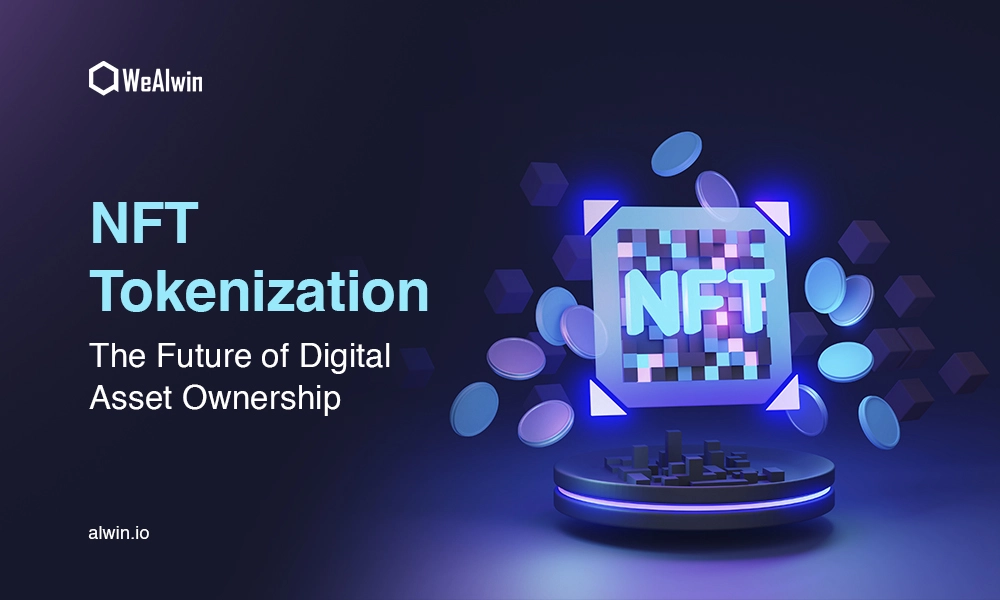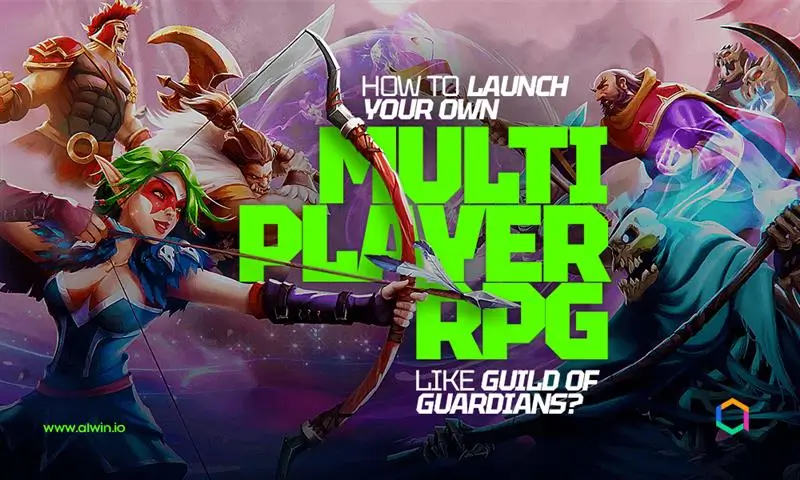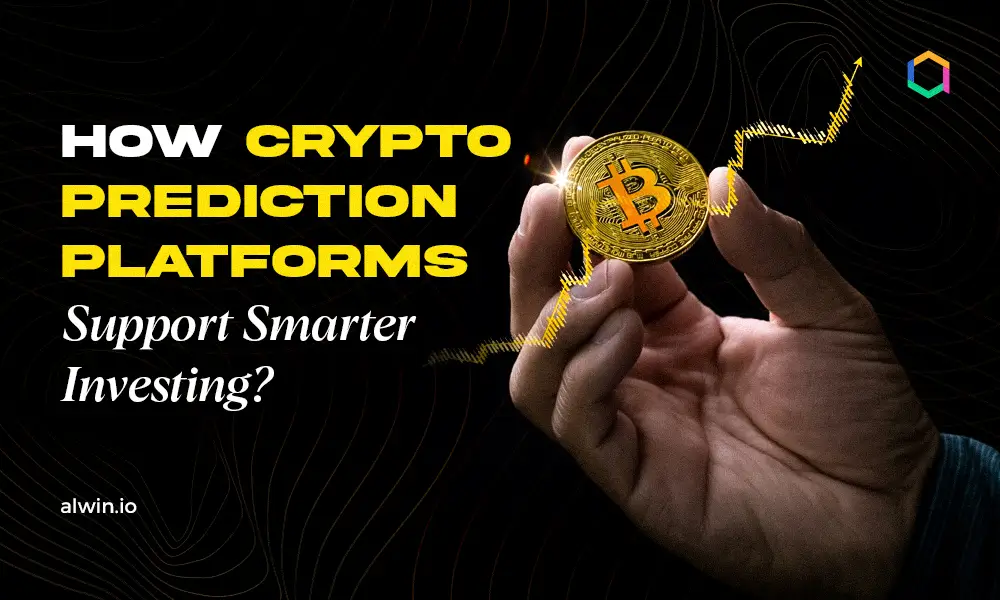Take a look at how NFT tokenization is revolutionizing the way we view and own digital assets. With blockchain technology, digital ownership is being redefined and decentralized finance is being powered.
As we embark on this exploration, you'll discover the mechanisms that make NFTs unique and the myriad of ways they're transforming the digital landscape. With NFT tokenization, the future of owning digital treasures is bright, secure, and surprisingly accessible. Stay with us as we dive into the exciting frontier of digital asset ownership like never before.
What is NFT Tokenization?
NFT Tokenization is like giving a digital thumbprint to items in the virtual world, making them unique and ownable. Imagine having a digital artwork, a rare music file, or even a tweet that you can claim as exclusively yours - that's what NFTs (Non-Fungible Tokens) allow through a process called tokenization.
Unlike traditional digital files that can be copied endlessly without losing quality or authenticity, an NFT has defined ownership recorded on a blockchain, making it as distinct and verifiable as owning a piece of land in the real world.
This concept of tokenization is revolutionizing how we conceive of digital ownership, opening new avenues for creators, collectors, and investors.
NFT Tokenization: On the Rise
The idea of owning a unique digital asset might have sounded like science fiction not too long ago.
However, the rapid growth of blockchain technology and a growing interest in decentralized finance (DeFi) have turned it into a burgeoning reality.
NFT tokenization is more than a trend; it's a growing wave, transforming everything from art and music to gaming and beyond, enabling a direct connection between creators, and consumers and fostering a new culture of digital collectors.
Digital Assets: A Conceptual Overview
Digital assets encompass a wide array of electronically stored data that comes with the right of use or ownership. This can include anything from domain names and social media content to digital art, music, and videos.
However, before the advent of blockchain technology and NFTs, proving ownership of these assets in a way that was recognized and respected universally was challenging.
NFTs have changed the game by embedding digital assets with a traceable, unforgeable record of authenticity and ownership. As a result, digital files become one-of-a-kind or part of a limited series, adding a layer of value that wasn't possible before.
Blockchain Technology
At the heart of NFT tokenization is blockchain technology - a decentralized digital ledger that records transactions across numerous computers in a way that prevents alteration. Each transaction or “block” is chained to the previous one, ensuring the integrity of the entire sequence.
This characteristic not only makes transactions secure and transparent but also allows for the creation of smart contracts. These self-executing contracts with the terms of the agreement directly written into lines of code automate and guarantee the conditions of an NFT's sale and ownership transfer.
Blockchain's immutable nature ensures that once a digital asset is tokenized as an NFT, its history and ownership are permanent and openly verifiable, revolutionizing our concept of owning digital assets.
How does NFT Tokenization Work?
Tokenizing Digital Assets
Tokenizing digital assets into NFTs (non-fungible tokens) is like turning a piece of art, music, or any online content into a unique, one-of-a-kind digital asset that can be bought, sold, or traded on the blockchain. The process begins with the creation or identification of a digital asset that the creator wants to tokenize.
An authenticated digital certificate is then assigned to the asset and stored on a blockchain. When the intangible asset is verified to have unique characteristics and ownership, it is tangible, has value, and can be traded globally.
Smart Contracts and NFTs
Smart contracts play a crucial role in NFT tokenization. They are self-executing contracts with the terms of the agreement between buyer and seller directly written into lines of code.
These contracts are stored on the blockchain and automate the enforcement, management, and payment of agreements. For NFTs, smart contracts ensure that the token’s ownership and transfer rules are followed, manage royalties for creators, and can even include specific conditions for the NFT's future use.
Essentially, smart contracts bring trust and security to NFT transactions, making them tamper-proof and decentralized.
Consult with our business experts for NFT Tokenization! Chat with us on WhatsApp
Benefits of NFT Tokenization
Increased liquidity: Tokenization of NFT assets allows for fractional ownership, making it easier for investors to buy and sell smaller shares of assets.
Enhanced security: Blockchain technology provides a secure and transparent way to track NFT asset ownership and transactions and reduces the risk of fraud and theft.
Global access: Tokenization enables NFT assets to trade on decentralized markets, making them accessible to a global audience of investors.
Smart contract automation: Smart contracts can be used to automate the transfer and payment of NFT assets, simplifying the process and reducing the need for intermediaries
Interoperability: Tokenization allows easy integration of NFT assets with other blockchain platforms and applications, increasing their usefulness and value.
Advantages of Digital Ownership
NFTs provide a powerful way for creators to maintain ownership and control over their digital work.
Unlike traditional digital files, which can be easily copied and distributed without permission, NFTs ensure that the creator is acknowledged and can benefit financially from their work.
Additionally, digital ownership through NFTs allows for the creation of a verified, transparent history of an asset’s ownership, adding value and authenticity to digital works.
Increased Market Accessibility
Artists, musicians, and other content creators have access to new markets and opportunities through NFT tokenization. By tokenizing their work, creators can access a global marketplace without the need for intermediaries such as galleries, publishers, or record labels.
This direct-to-consumer model not only increases market accessibility but also allows creators to retain a larger share of the profits from their work.
NFT Tokenization in Various Industries
The adoption of Non-Fungible Tokens (NFTs) is revolutionizing more than just the art world; it's transforming various industries by providing a unique way to prove ownership and transfer valuable digital assets. Let's delve into how NFT tokenization impacts different sectors.
Art and Collectibles
In the realm of art and collectibles, NFTs are a game-changer. Artists can now tokenize their work, creating a digital certificate of ownership that is unique and immutable.
This means buyers can be certain they are purchasing an original piece, directly supporting the creator. Besides art, collectibles like digital trading cards and rare virtual items have found a new life on the blockchain, often fetching high prices due to their verified scarcity and provenance.
Music and Entertainment
The music industry is also benefiting from NFT tokenization. Musicians can tokenize albums, singles, or even experiences, providing fans with a new way to support and connect with their favorite artists.
This isn't limited to music only; filmmakers, writers, and other creators in the entertainment sector are exploring NFTs to sell unique content, like behind-the-scenes footage or limited edition versions of their work.
Gaming and Virtual Real Estate
In gaming, NFTs allow for the tokenization of in-game assets like skins, characters, and even virtual land. Players can truly own their in-game items, trade them, or sell them. This concept extends to virtual real estate, where platforms enable users to buy, sell, and build on virtual land parcels, turning digital spaces into valuable assets.
Investing in NFTs
NFTs have not only opened up new avenues for creators but have also presented novel opportunities for investors.
Potential Returns on Investment
The popularity of NFTs as an investment lies in their potential for high returns. Rarity and uniqueness can drive up the value of a digital asset, especially when it comes to one-of-a-kind items or works by renowned artists. Early investors in high-demand NFTs have sometimes seen their values skyrocket, leading to significant profits.
Market Volatility and Risk Factors
However, investing in NFTs comes with its share of risk. The market is highly volatile, with prices fluctuating widely based on demand, trends, and the overall sentiment in the crypto space.
There's also the risk of investing in digital items that might not hold their value over time. Potential investors need to do their research, understand the market, and consider the longevity and potential demand for the NFTs they're interested in.
The Future of NFT Tokenization
The journey into the future of NFT tokenization looks promising and teeming with potential, transforming how we interact with digital assets. This evolution stands not just as a trend but as a cornerstone in the digital revolution, reshaping ownership, creation, and the value of online content.
NFTs and DeFi
NFTs are making a significant splash in Decentralized Finance (DeFi), offering new ways to engage with financial products and assets. By representing unique assets on a blockchain, NFTs allow for novel forms of investment and ownership.
This includes things like fractional ownership of real estate or art, where an NFT can represent a stake in a physical or digital asset. It opens up opportunities for individuals to participate in markets previously out of reach, democratizing access to investments.
Wide-ranging Applications and Innovations
As we look to the horizon, the potential applications and innovations of NFT tokenization are vast:
Digital Collectibles: Beyond art, NFTs are revolutionizing the collection of digital memorabilia, allowing for verifiable ownership of unique digital items.
Identity Verification: Use in digital identities, ensuring a secure and immutable record of personal identity information.
Gaming and Virtual Realities: Offering true ownership of in-game assets and virtual land.
Content Monetization: Empowering creators by giving them more control over how their content is distributed and monetized.
Artists and collectors will benefit from NFT tokenization, which offers secure, transparent, and decentralized solutions for digital ownership and investment.
The NFT tokenization trend is not just a trend, but a paradigm shift for how we perceive and manage assets. By channeling the power of blockchain technology, it assures a future where digital ownership is decentralized, secure, and easily verifiable.
A world of possibilities opens up for creators and investors, as well as ushering in a new era of decentralized finance. NFTs have the potential to fundamentally change the landscape of digital asset ownership as we explore their potential.



